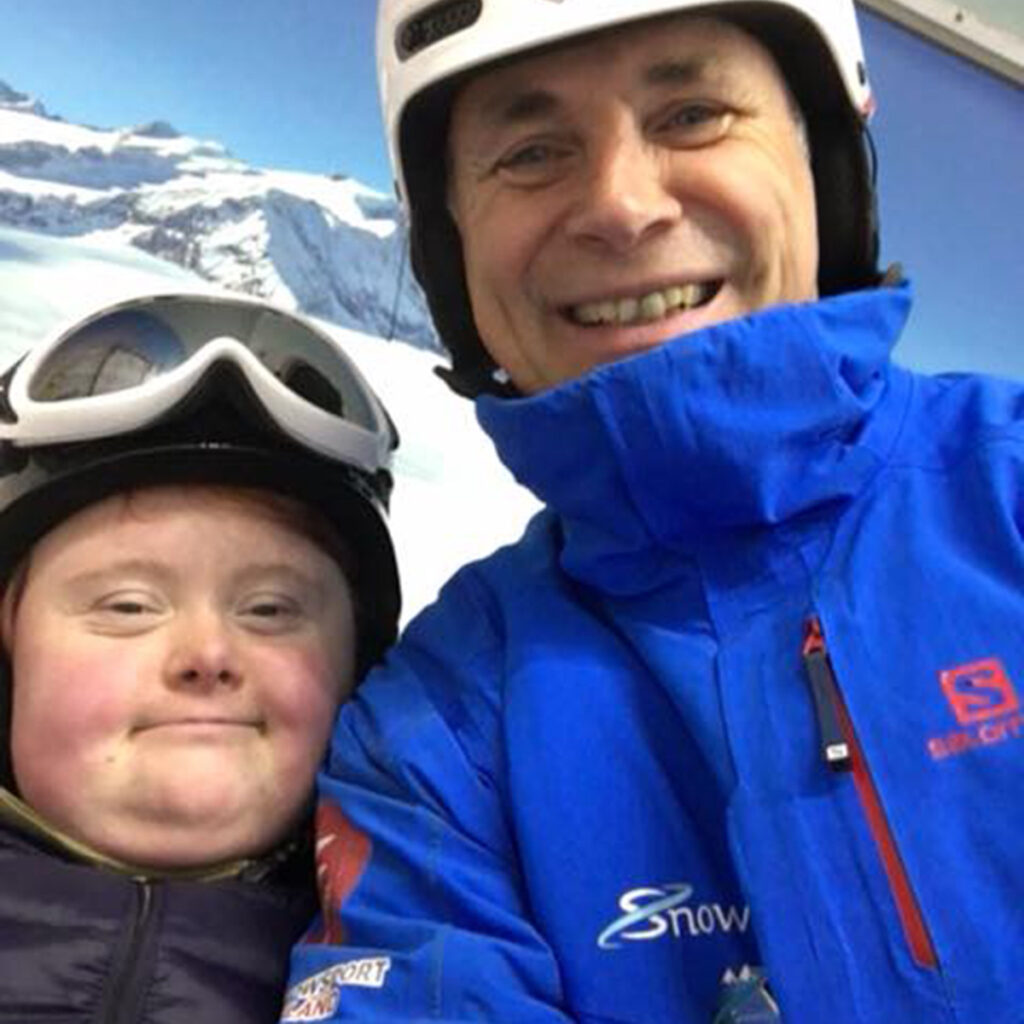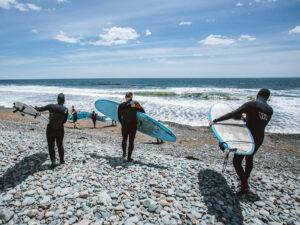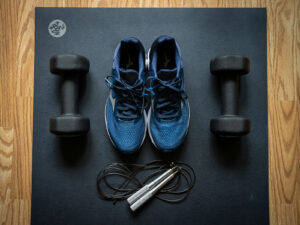Richard Fetherston: “You can’t put barriers on what’s possible.”

Hemel Hempstead has a long history of snowsports since opening a dry ski slope that gained popularity in the 1980s.
The facility was transformed in 2009 into the indoor Snow Centre that is there today. For approximately 12 hours a day, people are developing and honing their snowsports skills, and other abilities that transcend the parameters of the slope.
There is social bonding, breaking barriers, and people doing things that nobody thought they could do. This is where Snowbility comes in.
Founded in 2011 by ski development coach Richard Fetherston, Snowbility helps people who might require additional support to get out on the slopes and learn how to ski or snowboard. By doing this, Snowbility supports people to achieve individual goals, and reach their potential in sport and in life.
To make this possible, the journey to the top of the slopes starts way before the students get on the ski lift.
“It is all about the student,” said Richard. “We take the time to understand each personality, enabling their natural abilities and talents to shine through.
“To do this, we need to know more about the student. Prior to each new lesson we gather information, so the instructor is aware of their sensory processing. On the slopes, we chat to them about their day-to-day life, like home and school to help them relax.
“There are no complex rules, just a repetitive pattern that not only improves fitness and balance, but increases confidence, giving every student an overall sense of achievement and pride. We just give them an opportunity to be themselves on the slope, not wearing high visibility jackets, just cool ski brands.
“We’ve been going since 2011, back when people used the phrase disabilities and not additional needs and we saw the whole thing differently. We have 250 students every month and a large percentage are autistic, and since we started, I can’t think of a case where someone has come off and not been surprised at what they could do.”
The sessions have also helped students gain employability skills, which has naturally created a pathway in Snowbility where former students return as snowsports coaches to support other people with additional needs.
“We have 15 to 20 different instructors and a quarter of them are autistic themselves; former students employed by us to teach other students.
“The first session I did with a student was in 2019 in the Snow Centre car park because he wouldn’t get out the car or talk to me. His mum and dad put the window down and I sat there chatting to them for an hour.
“The following week he came in for five minutes, and now only five years later, he’s an instructor teaching other people. You can’t put barriers on what’s possible.
“We give our instructors confidence to just go for it, because whatever they do will just be fantastic; I’ve been doing this for years and they’ll sometimes tell me, ‘No, maybe do it this way.’ And I say absolutely, let’s see what will make a difference to the student, and to the instructor.”
The driving force behind every session, for Richard, is thinking about what the student can gain – and sometimes that’s just getting to the car park or spending a whole session drinking hot chocolate on the balcony and feeling what it is like to be in the Snow Centre.
“For an additional needs’ student, just to get near the slope can be challenging. Being driven to the Snow Centre, getting out of the car, coming into the Snow Centre, getting kitted up in clothing, a helmet and boots is like 20 little Everests they have to climb.
“Each one of these stages is important, so we have a ski or snowboard pass which looks at 40 different things which students get scored on how independently they can do it.
“To begin with, we will always provide as much support as they need. As they progress and become more confident, we will reduce that help. We have five different levels of Yeti reward badges that are given out as they achieve the different stages.
“It’s not just, can you ski? It’s lots of different things that we are looking at which can make a huge difference to them. It’s life changing.”
Richard first learnt to ski when he was nine years old, and it has been a passion ever since. In 2011, having ran a marketing company for the previous 15 years, he was ready to try something new.
“We started with a blank sheet of paper and the reason Snowbility started is because a severely autistic young man came into the Snow Centre in 2011, and I happened to be down in reception. He wanted a ski lesson, and everyone was wondering what was going on, and I said, ‘yeah come on!’
“That’s where it all started and now, we have over 250 students a month, 12 SEN schools every week and a charity called the Snow Sports Foundation.
“There are probably a lot of people doing a really good job across other sports; what will be good is for those organisations to be aware of each other doing it across the different disciplines.”
Spreading ideas, positive stories, and best practices far and wide can lead to things that transcend what happens on the pitch, court, rink, or slope.
“It’s not just about being kinder or more empathetic, or instructing in different ways, but understanding value.
“We had a wonderful young man who was a student and recently passed his instructor course. He messaged me on a Friday saying, ‘I can’t come in tomorrow because I’m nonverbal.’
“Being nonverbal is not a thought process, it’s not like one day he is and the next day he isn’t. But he was messaging me on his phone, and our response, as it has always been, is that that’s the reason to come in – to show the value of being nonverbal.
“Imagine seeing nonverbal instructors teaching nonverbal students – that’s the best thing I could possibly ever see. It crystalises everything about us, and we want more of our students to become instructors. A prospective employer would see on their CV that they are a ski instructor and wonder, how is it possible?
“And they can say, it absolutely is!”


